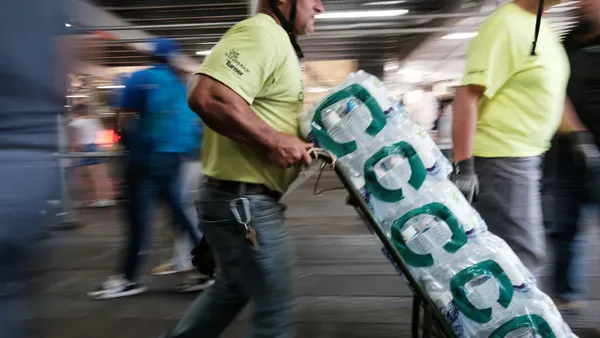Dive Brief:
- CB Insights says automation will claim 10 million service and warehouse jobs within the next five to 10 years. While computerization in manufacturing took place over a 100-year span, artificial intelligence is expected to claim jobs in a fraction of that time, says CB Insights.
- The top five jobs expected to be affected by automation are cooks and servers (4.3 million), cleaners (3.8 million), movers and warehouse workers (2.4 million), retail salespeople (4.6 million) and truck drivers (1.8 million). AI dates back to the 1950s but today, the technology and automation are advancing so fast that society is struggling to keep up, CB Insights notes.
- Taiwanese iPhone maker Foxconn replaced 60,000 workers with industrial robots earlier in the year. Nike and AI plan to automate their manufacturing processes to meet customer demand and speed up turnaround time. Amazon uses 45,000 robots in its warehouses. CB Insights says, however, that robots aren't perfect, particularly in picking, handling and gripping items in some environments, and that most AI applications need human involvement on some level.
Dive Insight:
The impact of automation and AI on jobs is a favored topic of study as of late and there's one common theme: Automation won't take over millions of jobs at once. Change will likely roll in over time; the question is how the workplace will respond to the change. Some sources predict that automation will usher in as many or more jobs then it claims. If so, HR can step up and lead the effort to upskill workers in preparation for their shift into new roles.
Some companies are anticipating the change by partnering with schools and nonprofits to train workers in the skills the market demands.
Even HR as a profession will be changed by automation. AI is expected to change the way HR professionals carry out recuiting, training and onboarding strategies. It's predicted that technology will decrease the time between screening candidates and bringing them onboard. Predictive analytics can help HR select the best candidates for their organizations, while other software tries to eliminate bias in hiring decisions. Recent studies also show that world-class HR departments are able to do more with less, thanks largely to technology — so HR managers need to adapt now.










